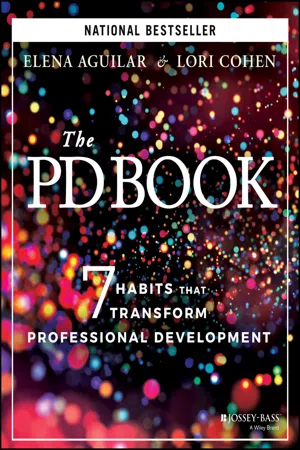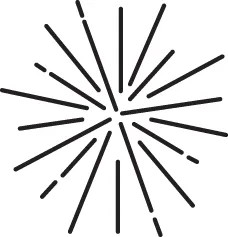At Curtis High School, Lori was about to lead her first workshop on Socratic Seminars, a student‐centered approach to discussion. She was a newer teacher at the site, and this was her first time presenting to all the staff.
Before the session began, the school's principal, Dr. Deal, addressed staff in the dimly lit school library. “I know I normally lead professional development,” she said, “but Lori Cohen is going to lead our session today. She came to my office last week after the College Success Conference and was very enthusiastic about this new method called Socratic Seminars. So I decided to let her share her learning with you.” Before Dr. Deal could introduce Lori, a longtime math teacher, Dan, raised his hand.
“Isn't Lori an English teacher? What's the purpose of learning about this?”
“Yes, she teaches English, but she thinks Socratic Seminars might help any teacher. You can figure out how to adapt it.” Dan looked at his math colleagues, one of whom shrugged. Marcus, the PE teacher, smirked and called across the library to Dan. “What do you care, Dan? You're retiring this year. I don't know what this has to do with PE, but I have to be here.”
Trying to ignore the comments, Lori placed bowls of chocolate‐covered pretzels and stacks of learning packets on each table. Dr. Deal continued, “Let's just see how this goes.”
“At least we get snacks,” Dan said. Laughter flickered across the room.
Undeterred, Lori flipped on the overhead projector, smiled, and shared an inspirational quote from one of her students who had recently participated in a Socratic Seminar. She didn't make explicit connections to other disciplines, but she talked about Socratic Seminars as a form of discussion that could be adapted to suit teachers' needs. Dr. Deal sat in the back of the library, filling out a grant application. She left halfway through the session, her walkie‐talkie blaring a garbled message as she rushed out.
As Lori asked for volunteers for a mock demonstration, Dan raised his hand again. “Yeah, um, Lori, you seem really nice, and it's clear you put time into this presentation. I'm still hoping you can explain how this is relevant for over half the teachers in this room. It's midterms, and I have a lot of grading to do before the reporting period ends.” Some teachers nodded their heads. Lori was silent, not sure how to respond.
Eileen, a respected history teacher and Lori's former mentor, interrupted. “Dan, I hear you. Those of us who have been here a long time have sat through a lot of PD that's had nothing to do with us. That's not Lori's fault.” Dan nodded, but he was also thinking, this too shall pass.
Six volunteers (Eileen and Marcus included) participated in a brief Socratic Seminar. Dan ignored the demonstration and graded the stack of math quizzes he'd brought with him. Dr. Deal stepped back into the room with five minutes left in the session.
In the final minute, Dr. Deal thanked Lori for sharing her learning, and half the room clapped. Some teachers grabbed a final handful of pretzels and left their packets on the tables. A few told Lori, “Good job.” Dan approached Dr. Deal on his way out of the room. “Lori did a nice job, but that PD served no purpose for me.”
Dismantling PD Apathy
Recall a PD session you recently attended and reflect on the following questions:
- What was the session's purpose?
- How did the agenda and activities meet the PD's purpose?
- How did the facilitator make the learning matter for participants?
- What was the impact of the PD in relation to the purpose?
Getting Clear on Purpose
When the purpose of PD is clear, participants are more willing and eager to engage in learning and transformation becomes possible. When the purpose is not clear, participants become cynical and “this too shall pass” becomes the mantra. PD becomes a thing to endure, not something that helps people develop skills and knowledge.
In this book we ask, what if PD could be more like a party? What if PD could be a gathering for learning and growth? PD needs to be the primary vehicle through which adults acquire the tools, skills, strategies, and knowledge to ensure every child gets what they need every day to thrive. But if PD is thought of as an endurance test, it won't fulfill that potential. Our thoughts become our reality: To create a new mental model about PD, we must start by getting clear on purpose. Purpose is a key component of making more intentional systemic change, and it's the first step in transforming your PD.
This chapter offers a process for determining purpose. You'll begin by getting clear about the purpose of your PD and how that purpose might serve you beyond a single PD session. You will then explore how to use that purpose to develop outcomes and possible activities for your PD. You will learn how to make the learning matter by communicating purpose before, during, and after your PD. And you will receive guidance on how to assess the impact of your PD using multiple measures.
Throughout this chapter we're going to revisit the opening story, beginning with the moment when Lori walks into Dr. Deal's office, enthusiastic about leading PD on Socratic Seminars. We're going to imagine this story takes an alternate path, one where Dr. Deal says, “Lori, I love your enthusiasm. I think this is a great idea. But before we move forward and you present to staff, let's identify the why for this session. Let's make sure this PD can change teachers' practices and have an empowering impact on students.” As we follow Lori and Dr. Deal's process, we'll see what might be possible for them—and you—when purpose drives PD.
Purpose: The Foundation for Transformational Learning
To get clear on purpose, we first ask why—not just once, but throughout the planning process. When the purpose is clear, everything flows from there—the planning process is more meaningful, and the time spent in the PD matters to participants more. When participants are clear on the purpose, they are more willing to learn and transfer that learning to their contexts.
Five Whys to Purpose
One structure that supports this clarity is an exercise called the Five Whys to Purpose, adapted from National School Reform Faculty. The Five Whys to Purpose helps you consider what's at the core of your PD. In systems thinking, this process is called root‐cause analysis. This kind of analysis helps leaders and teams consider the root causes of systemic issues so they can respond strategically. The Five Whys to Purpose exercise guides you to articulate why your PD really matters. Here's how the exercise works:
- Think of an upcoming PD session you're leading. Identify what you think the purpose for this session is and why this needs to be the purpose. Write down an initial purpose statement. Then answer the question “why?” underneath your purpose statement.
- Complete this process four more times. Just let the ideas come without forcing your response. Doing this five times allows you to dig below the surface to uncover additional, and potentially deeper, purposes.
- After the fifth why, review your responses and write your final purpose statement. You might find that your original purpose has changed and something more pressing has emerged. Or you might find that your why connects to something larger. A PD on Socratic Seminars, for example, may turn out to be less about a discussion protocol and more about student empowerment.
When participants in Bright Morning's Artful Design and Facilitation completed this exercise and shared their final purpose statements, many communicated amazement at where this exercise took them. One participant, Rosario, wanted to lead a PD on equity‐focused conversations. Her initial purpose was “to provide tools for teachers to talk about sensitive topics.” As she completed the exercise, she uncovered that the purpose was less about the tools themselves (though the tools are important) and more about “ensuring that our students feel seen and cared for so they can be affirmed at school.” By the end of the quick exercise, most participants...

